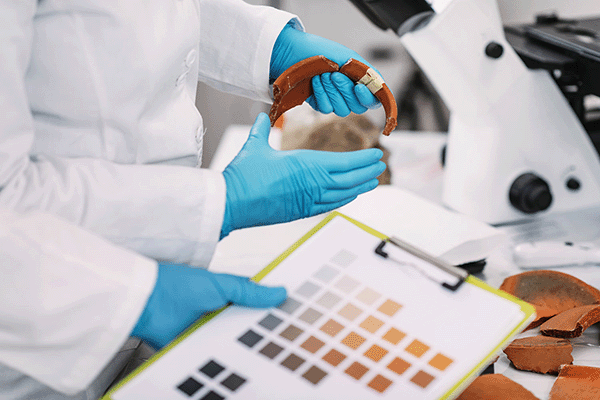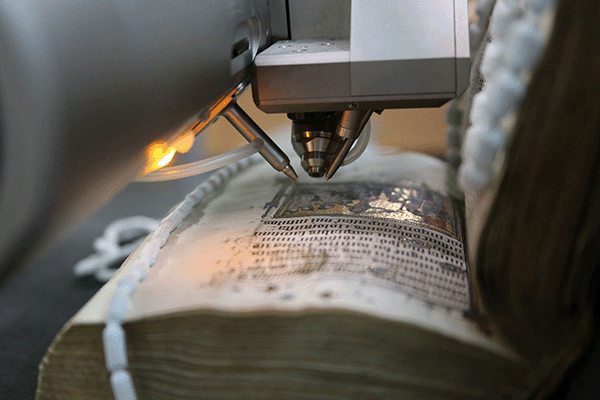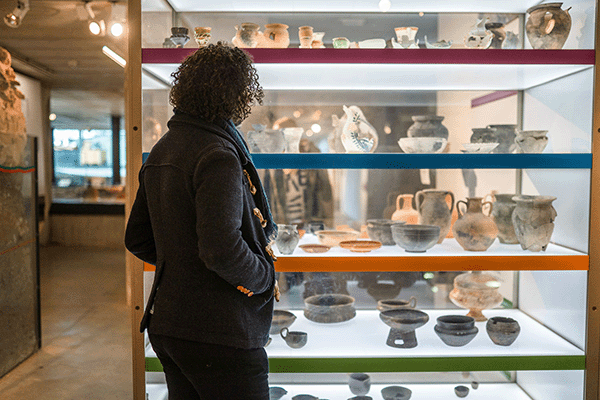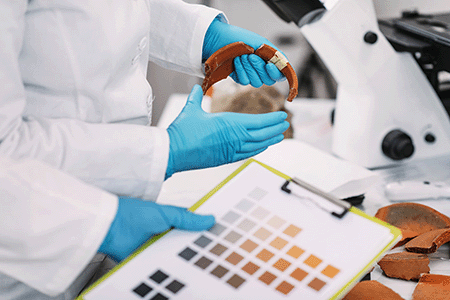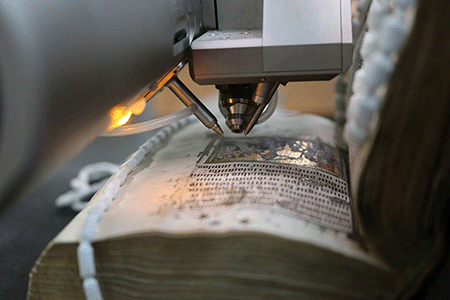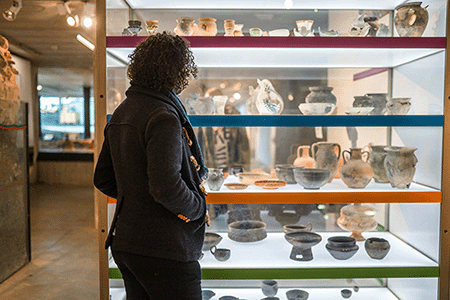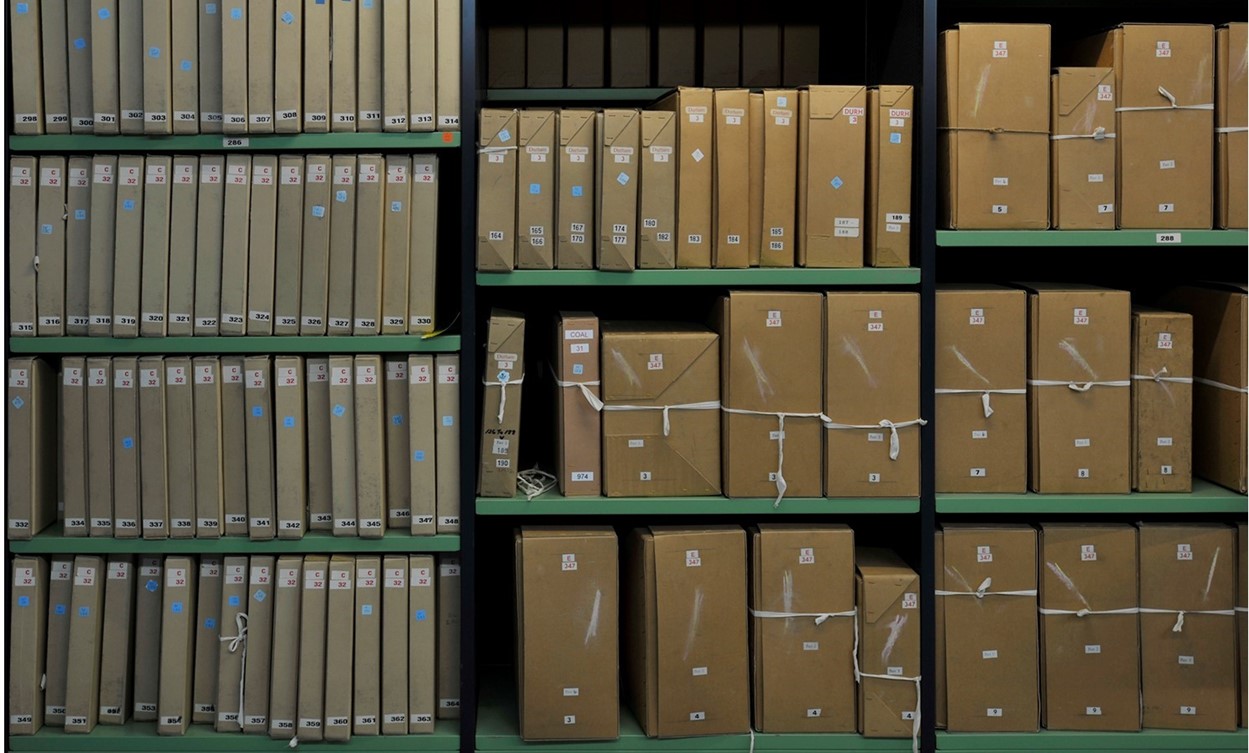The RICHeS team recently travelled to Kew to visit The National Archives and meet with the team delivering the RICHeS’ funded Centre for Heritage Science and Conservation Research project. Led by Juergen Vervoorst, Head of Collection Care, this initiative will enhance the infrastructure of National Archives’ Heritage Science and Conservation Research (HSCR) facilities. The enhanced infrastructure will contribute to expanding research opportunities across the heritage sector, and particularly to written heritage, by improving access to high-quality conservation and scientific research environments.
Expanding capabilities to reveal the past
During the visit, the RICHeS team explored the current HSCR facilities, including the large studio where the Collection Care team works. This space is accessible to visitors through guided tours, offering visitors a chance to learn the different ways the team enables long term and sustainable access to the collection.
Thanks to the RICHeS investment, the existing laboratory and office areas will be upgraded to create four specialised laboratories: analytical, dark, wet and dry. These laboratories have been carefully designed for efficiency, adaptability and for future expansion. Visitors will be able to safely observe work in in the new analytical lab through a glass window, from the current studio. Additional upgrades include a new external strong room, which will allow for the safe storage of external collection items. The space will also feature a secure area to support the movement of collections via air cargo in line with Known Consignor Scheme requirements, facilitating greater collaboration across the UK and internationally.
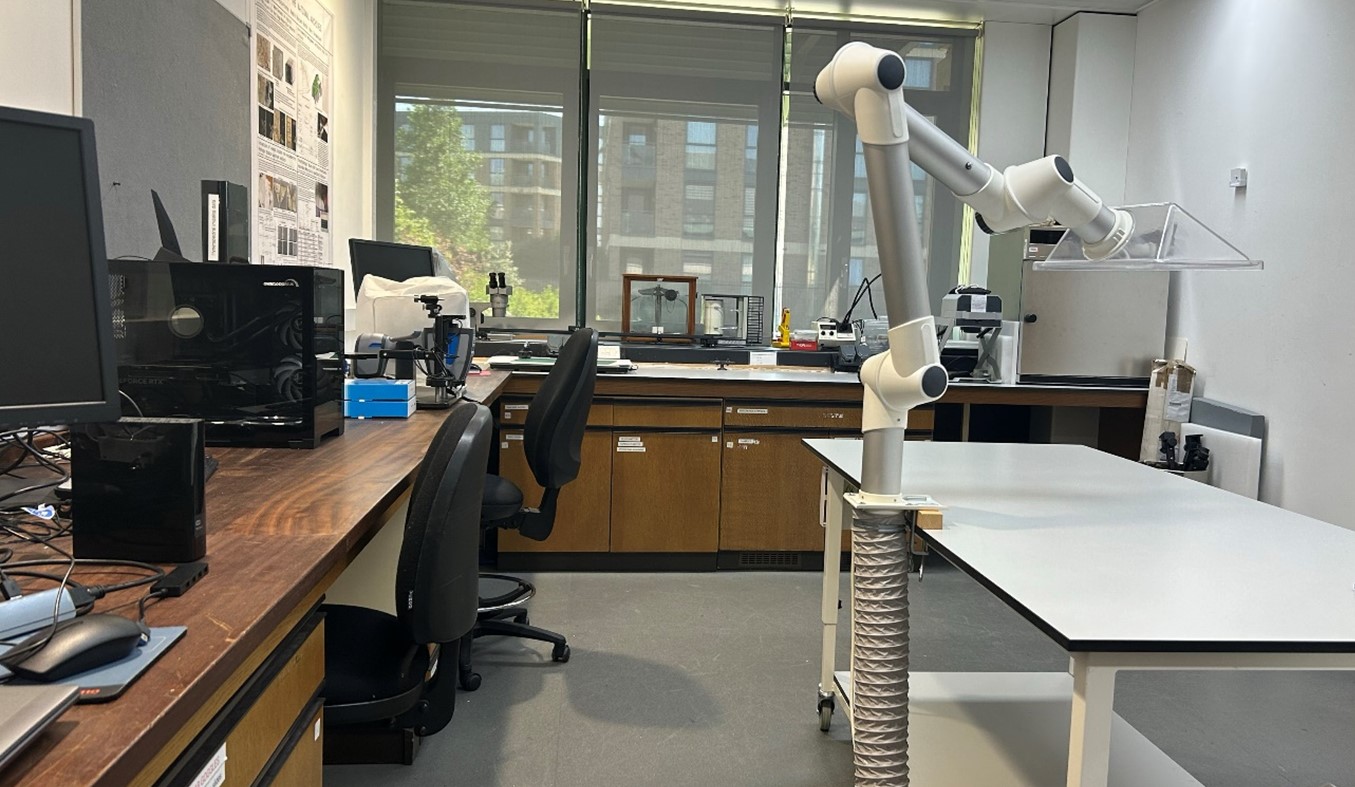
Enhancing research with new technology
The new and upgraded laboratories will be equipped with advanced technologies funded through RICHeS, particularly for x-ray fluorescence (XRF) imaging and hyperspectral imaging. This technology is essential for revealing text and details hidden beneath degradation. The Collections Care team have carefully trialled equipment to ensure the chosen tools meet their specific conservation needs. Importantly, the technologies are being selected to minimise heat exposure, safeguarding sensitive materials like parchment. These developments build on the capabilities supported by the Arts and Humanities Research Council Capability for Collections Fund (CapCo), that included the acquisition of an open-geometry Horiba Raman microscope that was instrumental in unlocking sealed historic letters. The RICHeS team are excited to see how these new technologies will continue to make the invisible visible, bringing lost stories from the past back into view.
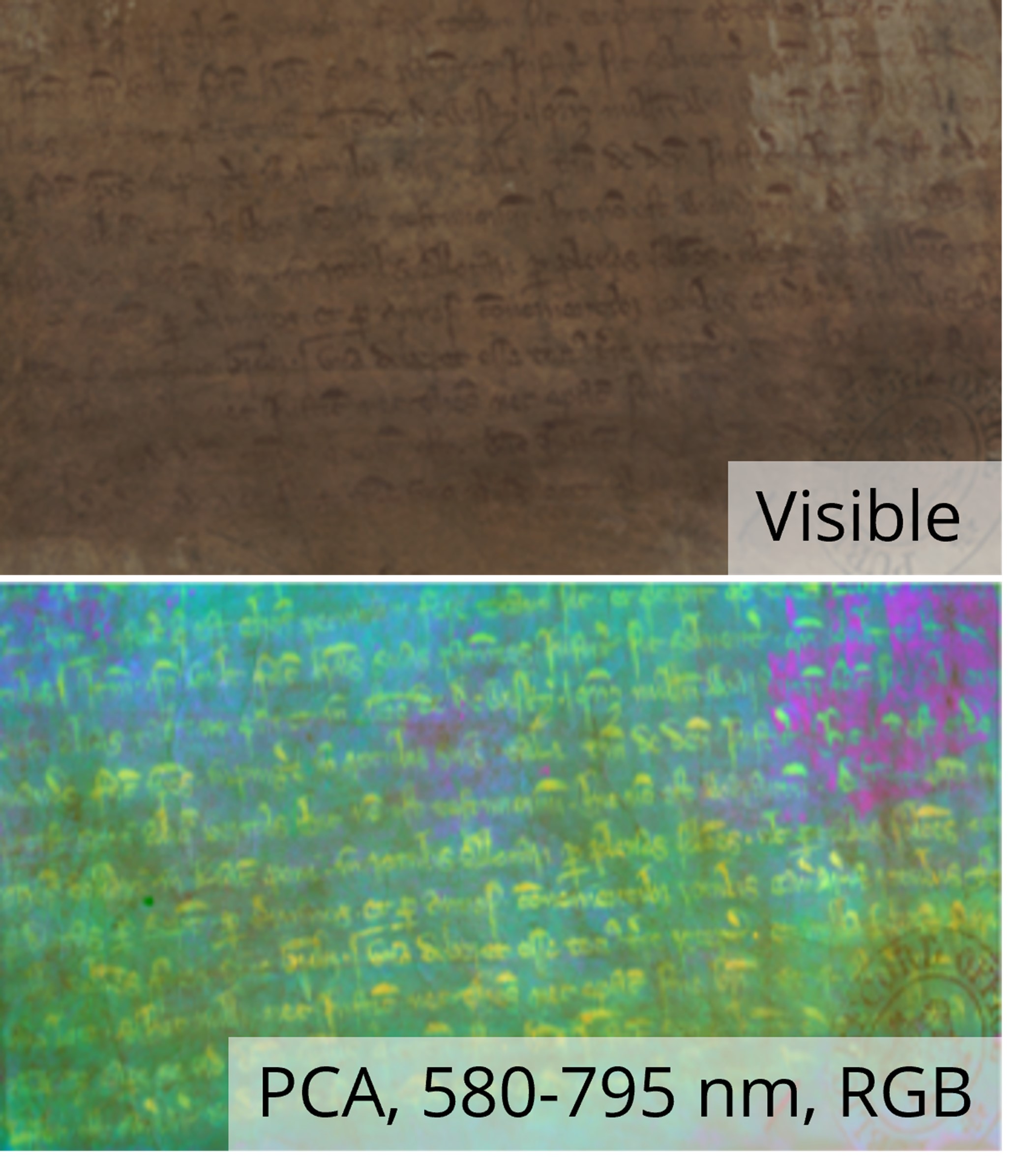
Driving forward conservation and heritage science access
Conservation, research infrastructure and heritage science are central to The National Archives’ Research Vision 2024-27, which seeks to create inclusive, global access to archival materials. The Centre for Heritage Science and Conservation Research project reflects that vision, demonstrating sector leadership and showcasing the power of archives in driving research and innovation.
Working with colleagues across the RICHeS distributed infrastructure, the National Archives are also a partner in the consortium developing the Heritage Science Data Service, a national platform that will provide a comprehensive digital research service that will expand and support access to heritage science data for the sector.
The RICHeS team is pleased to announce that The National Archives will host the next RICHeS regional workshop on Wednesday 2 July 2025, focusing on the theme of Enhancing Narratives. The RICHeS team look forward to returning to Kew for the event and to continue these important conversations.
Juergen Vervoorst shares:
“RICHeS is about to transform Heritage Science and Conservation Research in the UK forever. To be part of this transformation, to shape Heritage Science Conservation Research for the archives sector and written heritage more broadly, and to contribute to how we manage and share data in this field is hugely exciting and an immense opportunity“

